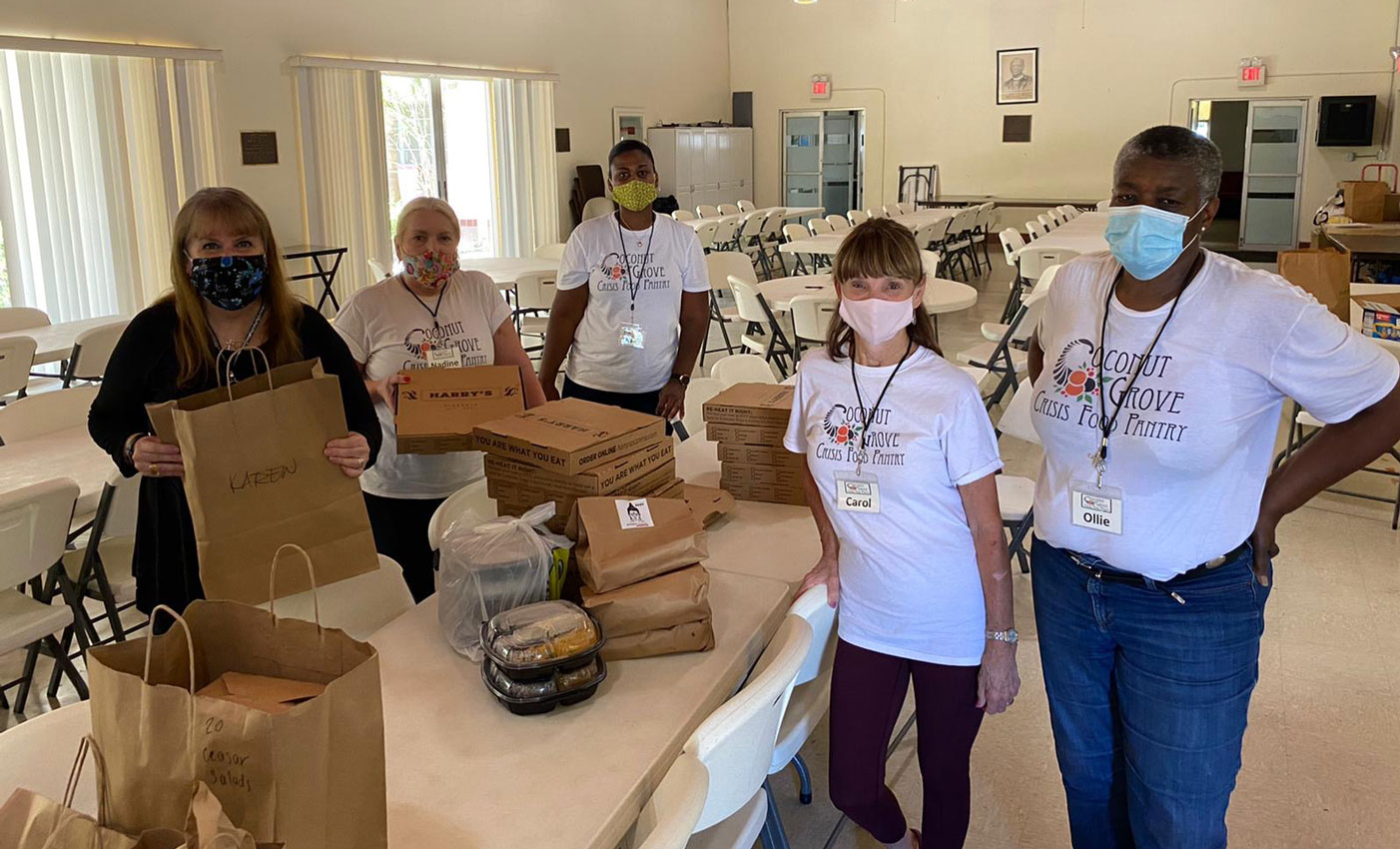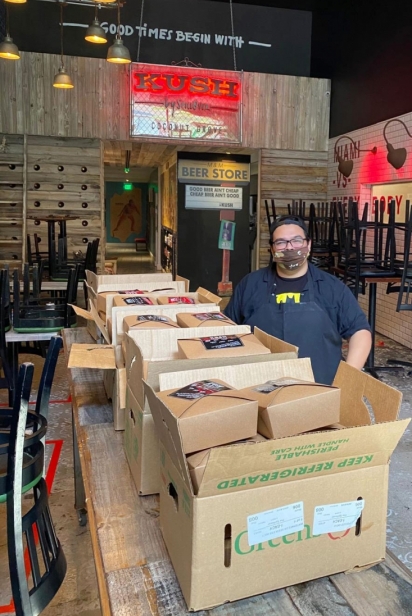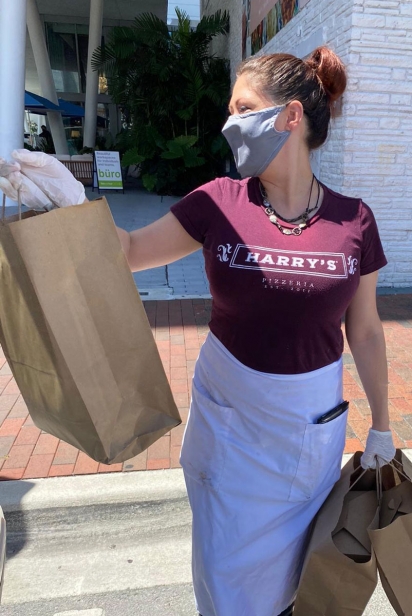Grove Stove Meal Deliveries Help Restaurants, Those in Need
Coconut Grove restaurants and nonprofits are benefiting through Grove Stove, a program that buys meals from area restaurants and donates them to nonprofits, who distribute them to those who can use a healthy meal.
The Coconut Grove BID has allocated $150,000 for the project, which pays participating restaurants $15 per meal to provide up to 50 meals every week. Those meals then go to the Coconut Grove Food Crisis Network, St. James Baptist Church and Grove Outreach for distribution.
The initiative helps struggling restaurants and addresses the issue of food scarcity, says Miami city commissioner Ken Russell, who heads up the BID. “We’ve been trying to help businesses since the pandemic started. We need to be part of the solution in a holistic way.”Typically, business improvement districts, funded by commercial landowners, tackle beautification projects, marketing, public relations and promotional efforts. But when the pandemic forced restaurants to close in the spring, the BID’s role changed as it become “more urgent to help businesses survive,” says Russell. Those measures, overseen by the BID’s executive director, Abigael Mahony, included converting the Freebee vehicles into restaurant delivery vehicles, closing off Fuller Street to traffic to allow restaurants more outdoor dining space, and the new Grove Stove plan. Participating restaurants include Ariete Hospitality, Bombay Darbar, Harry’s Pizzeria, LoKal, Kush by Spillover, Saffron at the Grove, Atchana’s Homegrown Thai, Blonde Bistro, Florida Avenue Hospitality, Meraki Greek Bistro, Oasis, and Barracuda Taphouse and Grill.
Grove Stove “works great,” says Aaron Dreilinger of Florida Avenue Hospitality. “They pay a fair price and we provide a healthy, wholesome meal.” A recent meal they provided was turkey vaca frita with fresh veggies and roasted root vegetables. The BID partnered with local startup OOjEE to coordinate between restaurants and food recipients.
Miami-Dade restaurants are still only allowed to be open at 50 percent capacity, although Miami-Dade mayor Carlos Gimenez has ordered the curfew to move from 10pm to 11pm effective Monday, Sept. 14. “Fifty percent capacity is not enough for a restaurant to be profitable,” says Russell. But this program will keep their kitchens busy at least part of the time in the weeks ahead, and may serve as a model for other governmental agencies. “I hope this concept catches on,” he says.






